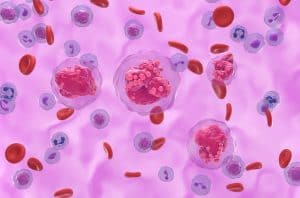Almost 9 in 10 CCGs not implementing NICE guidelines on antibiotic resistance
pharmafile | May 12, 2016 | News story | Research and Development, Sales and Marketing | CCGs, NICE, antibiotic resistance, failure
The Patients Association has called on all Clinical Commissioning Groups (CCGs) to implement the National Institute for Health and Care Excellence’s (NICE) guidelines on minimising the risk of antibiotic resistance after it emerged that 88% of CCGs have not yet implement the guidelines as standard.
A freedom of information request by the Patient’s Association on 144 CCGs in England also revealed that 31% don’t have a “named” individual responsible for the implementation of NICE’s guidelines on the issue while one in 10 don’t have a local programme to tackle antibiotic resistance at all.
NICE’s 2015 antimicrobial stewardship guidelines are a set of coordinated strategies to improve the use of antibiotics with the goal of enhancing patient health outcomes, reducing resistance to antibiotics and decreasing unnecessary costs.
Antibiotic resistance has emerged as a global crisis in recent years. Upon the announcement of a new pharma initiative to tackle the problem in January, the chief executive of Antibiotic Research UK, Professor Colin Garner, said: “The problem of antibiotic resistance is here and now and getting worse. We need to convert fine words into an action plan at a global, regional, national and local level. At the moment too many different bodies are making proposals but these require real money to be found which at present is lacking.”
Sister Liz Cross, advanced nurse practitioner operating within Herts Valley CCG, echoes these sentiments upon the announcement of these new figures. She says: “With budgets tight, it is understandable that CCGs might not prioritise AMS strategies or measures to decrease unnecessary antibiotic prescribing but the long term impact on patient safety is significant and should not be underestimated.”
Katherine Murphy, chief executive of The Patients Association, comments: “We need a greater adoption and implementation of current antimicrobial stewardship policy levers particularly in primary care where the majority of prescribing exists, alongside an increased uptake of measures proven to reduce inappropriate antibiotic prescribing. Measures such as cost-effective diagnostics and patient education materials which, if prioritised and implemented correctly, can really help in the fight against AMR.”
Sean Murray
Related Content

NICE recommends migraine treatment for NHS use
The National Institute for Health and Care Excellence (NICE) has shared draft guidance recommending AbbVie’s …

GSK’s Jemperli recommended by NICE for endometrial cancer treatment
GSK has announced that the National Institute for Health and Care Excellence (NICE) has recommended …

NICE recommends SC treatment of AbbVie’s Tepkinly for patients with DLBCL
AbbVie has announced that the National Institute for Health and Care Excellence (NICE) has recommended …








